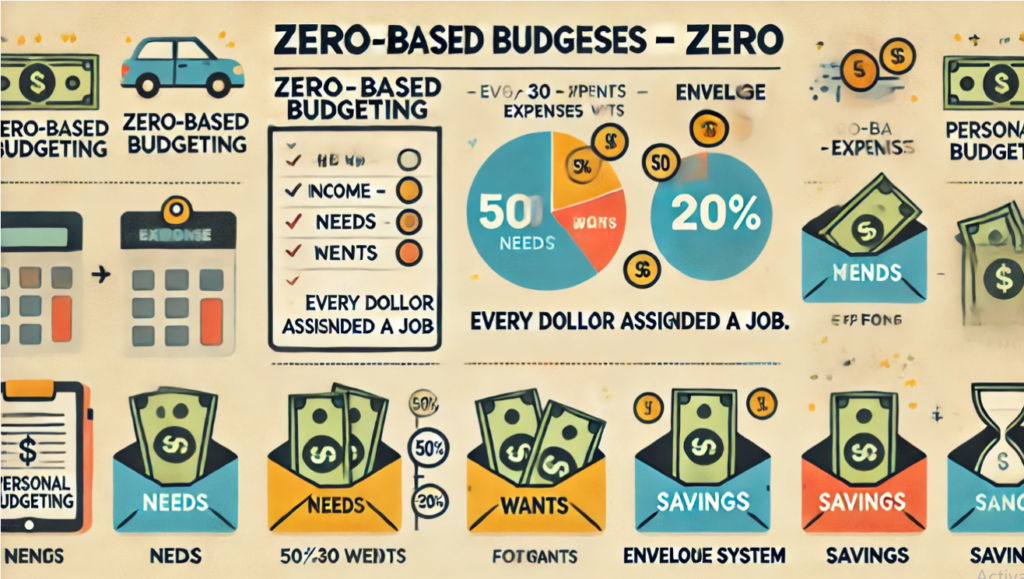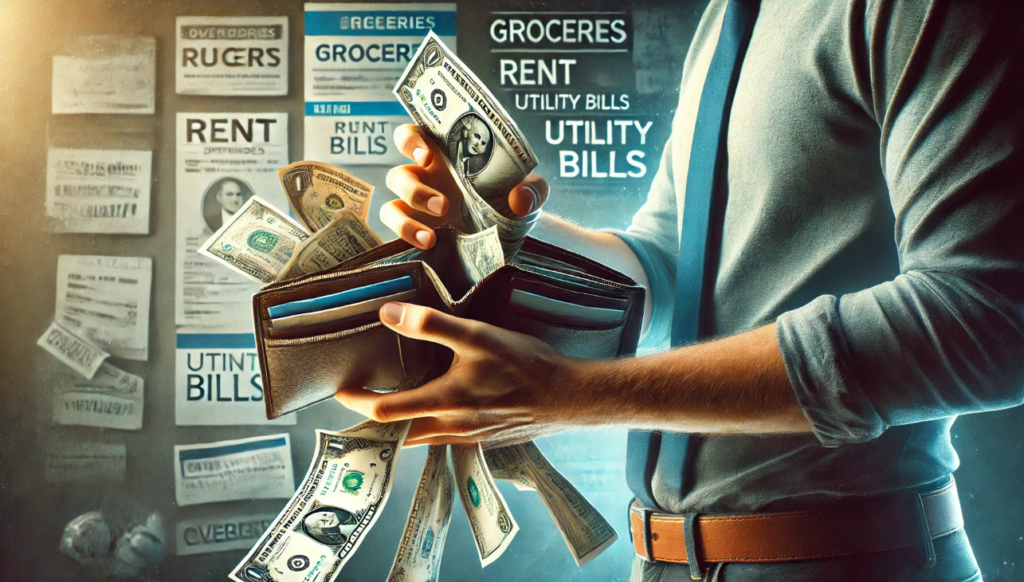
Budgeting is a crucial tool for achieving financial stability and reaching future financial goals. It helps individuals and families to track their income and expenses, prioritize spending, and ultimately achieve their financial aspirations. By creating and maintaining a clear budget, individuals can reduce financial stress, avoid debt, and work towards building a savings fund for emergencies or long-term goals. It can helps to know how to plan a monthly budget. This article will provide practical and actionable strategies for effective budgeting, including tips on how to create a budget, track expenses, and adjust spending habits. We will also explore the benefits of budgeting, such as gaining control over finances, reducing overspending, and establishing a clear path towards achieving financial goals.
Understanding the Basics of Budgeting
Budgeting is an essential financial management tool that helps individuals and households track and control their spending. There are several types of budgets, including zero-based budgeting, the 50/30/20 rule, and the envelope system, each with its own approach to managing income and expenses. Understanding your income versus expenses is crucial to building a balanced budget that ensures you are not spending more than you earn. Sticking to a monthly budget offers numerous benefits, such as helping you prioritize your spending, avoid unnecessary debt, and save for future goals. It also provides a clear overview of where your money is going and can help you identify areas where you may be overspending.
Track Your Income and Expenses

Tracking your income and expenses is essential for gaining a clear understanding of your financial situation. Knowing your monthly income, including your salary, freelance work, and any side hustles, is crucial for creating a realistic budget and ensuring that you can cover your expenses. There are various methods for tracking your income, including reviewing bank statements, pay stubs, or using apps that automatically track your income and categorize it for you. When it comes to expenses, it’s important to identify both fixed and variable expenses. Fixed expenses such as rent, utilities, and insurance are consistent month to month, while variable expenses like groceries, entertainment, and dining out can fluctuate.
Set Realistic Financial Goals

Setting realistic financial goals is an essential step in building a solid financial foundation. It’s important to differentiate between short-term and long-term goals. Short-term goals may include saving for a vacation or paying off credit card debt, while long-term goals could involve saving for retirement or buying a home. When setting financial goals, it’s crucial to make them SMART: Specific, Measurable, Achievable, Relevant, and Time-bound. For example, instead of simply saying “save money,” a SMART goal would be “save $3,000 for a vacation by December 2023.” This approach helps to make goals more actionable and attainable. Prioritizing goals is also important.
Categorize Your Expenses

Fixed vs. variable expenses:
Fixed expenses are costs that remain the same each month, such as rent or mortgage payments, car payments, and insurance premiums. Variable expenses, on the other hand, can fluctuate from month to month, such as groceries, entertainment, and utility bills. It’s important to differentiate between fixed and variable expenses because it helps you better understand your monthly cash flow and budgeting. By knowing the difference, you can prioritize your spending and make more informed financial decisions. Additionally, understanding your fixed and variable expenses can help you plan for unexpected changes in your budget and make necessary adjustments.
Necessary vs. discretionary spending:
Necessary spending refers to essential items or services that are required for basic living, such as food, shelter, and healthcare. On the other hand, discretionary spending refers to non-essential items or services that are not crucial for survival, such as entertainment, dining out, or luxury goods. To distinguish between needs and wants, it is important to prioritize your expenses based on their importance to your well-being and overall financial stability. Consider whether the item or service is necessary for your basic needs or if it is simply a desire or luxury. It can also be helpful to create a budget and carefully evaluate your spending habits to ensure that you are prioritizing necessary expenses over discretionary ones.
Tools and templates to create budget categories.

There are a variety of tools and templates available to help create budget categories. Many financial software programs, such as Mint or You Need a Budget, offer customizable budgeting features that allow you to create and track specific spending categories. Additionally, there are numerous budgeting templates available for free online, including spreadsheets and printable worksheets, that can help organize your expenses into clear and manageable categories. These tools can be valuable resources for individuals and families looking to take control of their finances and create a comprehensive budget plan.
Establishing a balance:
It’s important to establish a balance between meeting your essential needs and having room for personal spending. This means prioritizing things like housing, food, and transportation, while also allowing yourself some flexibility for leisure activities or personal indulgences. Creating a budget and tracking your expenses can help you manage your finances effectively and ensure you’re able to meet your needs while still enjoying some personal spending. Finding this balance can help reduce financial stress and contribute to overall well-being.
A typical monthly budget breakdown often follows the 50/30/20 rule, which means allocating 50% of your income to needs such as rent/mortgage, utilities, groceries, and transportation. 30% is typically allocated for wants, such as dining out, entertainment, and shopping, while the remaining 20% is allocated for savings and debt repayment. This breakdown helps individuals prioritize their spending and ensure they are meeting their financial goals.
Implement the 50/30/20 Rule

The 50/30/20 rule is a widely recommended budgeting strategy that can help individuals effectively allocate their income towards different financial priorities. The rule suggests dividing your after-tax income into three categories: 50% for needs, 30% for wants, and 20% for savings and debt repayment. The 50% allocated for needs covers essential expenses such as housing, food, and insurance. The 30% for wants can be used for non-essential expenses like dining out, entertainment, and shopping. The remaining 20% is reserved for savings, including building an emergency fund, contributing to retirement accounts, and paying off debt. When applying this rule, it’s important to consider different income levels.
Monitor and Adjust Your Budget Regularly

It is crucial to regularly monitor and adjust your budget to ensure that you are staying on track with your financial goals. Reviewing your budget at the end of each month allows you to see where your money is going and make any necessary adjustments. If you find that you have overspent in a certain category, you can look for ways to cut back in other areas to make up for it. On the other hand, if you have underspent, you can decide whether to reallocate those funds to other areas or to save them for future expenses. It’s also important to stay flexible with your budget, as life changes, unexpected expenses, or increases in income can all impact your financial situation.
Build an Emergency Fund and Save for the Future

An emergency fund is a sum of money set aside to cover unexpected expenses or financial emergencies such as medical bills, car repairs, or job loss. It is important for financial security because it provides a safety net and can help prevent individuals from going into debt to cover these unexpected costs. Financial experts recommend aiming for 3-6 months’ worth of living expenses in an emergency fund to ensure that you are prepared for any unforeseen circumstances. It’s important to start small and make consistent contributions to your emergency fund, even if you can only afford to save a small amount each month. In addition to building an emergency fund, it’s also essential to save for future goals such as retirement, homeownership, or college funds.
Cut Unnecessary Expenses and Save More

Cutting unnecessary expenses is a crucial step in saving more money. By identifying areas where you can cut back without sacrificing your quality of life, you can start to see significant savings over time. Common areas to consider cutting back on include subscriptions, dining out, and impulse purchases. To reduce discretionary spending, consider practical tips such as meal planning, shopping smart, and taking advantage of cashback offers. By being more mindful of your spending habits, you can easily identify where you may be overspending and make adjustments accordingly. It’s important to recognize that cutting small, frequent expenses can add up over time.
Stay Motivated and Accountable

Staying motivated and accountable when it comes to budgeting is crucial for your financial success. It can be easy to lose motivation or veer off course, but by staying focused and committed, you can achieve your financial goals. One way to stay accountable is by setting reminders for yourself to check in on your budget regularly. You could also consider reviewing your progress with a partner or using budgeting apps to help keep you on track. Celebrating milestones and small successes along the way can also help keep you encouraged and motivated. Consider treating yourself to something small when you reach a financial goal, as it can help reinforce positive behavior. Another option is to join budgeting challenges or find an accountability partner to help keep you motivated and on track.
In conclusion, budgeting is an essential tool for managing money effectively. By creating a budget, individuals can track their income and expenses, prioritize spending, and ultimately achieve their financial goals. The budgeting process involves identifying sources of income, listing all expenses, and allocating funds for various categories such as bills, savings, and discretionary spending. It is crucial to take action and start creating a budget today. By doing so, individuals can gain better control over their finances, reduce financial stress, and make informed decisions about their money. Additionally, budgeting can help individuals save for important milestones such as buying a home, starting a business, or planning for retirement. The benefits of budgeting are numerous and impactful.













